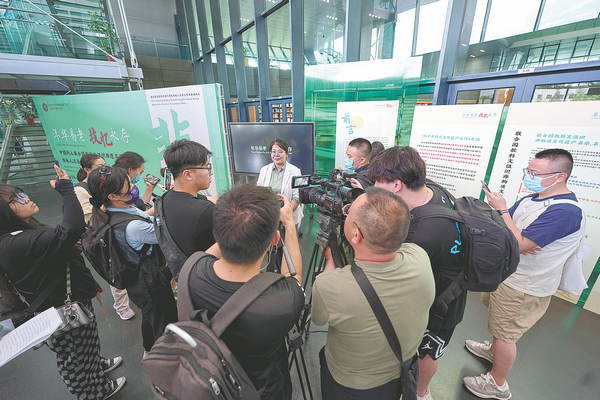

Popular appeal
Because some practices are carried out over an extended period of time, it can take one or two years to work with each inheritor. So far, the project has been following up on more than 1,800 inheritors, among which the documentation on 1,040 inheritors has been completed.
"We want to keep an in-depth record about each national-level inheritor, including their practice, teaching, and personal recollections. It's like building a comprehensive audiovisual archive for the inheritors," says Dai Xiaoye, deputy director of the Chinese Memory team.
By participating in the project, Dai says that she has been witnessing and is constantly moved by the behind-the-scenes stories that are often not recorded.
One of the art forms that have been documented is Yueqing thin-line paper-cutting from Zhejiang province. As ornaments on festive lanterns, the paper-cut works feature hundreds of exquisite cuts on tiny pieces of paper and carry a propitious meaning of warding against diseases.
"When we visited Lin Bangdong, the inheritor of the art form, he already had some memory loss and couldn't even remember his own family members sometimes. But when he saw us, he immediately led us to his study and started showing us all his works," Dai recalls.
"If he had used such refined cutting techniques in other professions, he could probably have earned a lot more, but he persevered in the art form, so that we can still see it today."
Alongside the exhibition, the library also hosts offline screenings of the documentaries in its own cinema. Visitors can sign up online for a time slot, during which four documentaries, each 30 minutes long, are screened.
The team initially had concerns that the audience members might get restless watching documentaries about traditional culture, but it soon turned out that their worries were unfounded, based on the feedback they received.
Dai recalls that when the screenings were hosted for the first time in 2018, the team left notes for the audience members to give their ratings and leave feedback, and a particular note from a primary school student moved them all.
"Not only did he give full marks to all the documentaries, he also wrote that, 'I like these documentaries very much and pay tribute to these respectable inheritors and people recording their stories'," Dai says.
"His feedback immediately made it all worthwhile. Actually, we as contemporary viewers want to see these documentaries. Even as short videos prevail, we can still sit down and get to know these valuable stories."